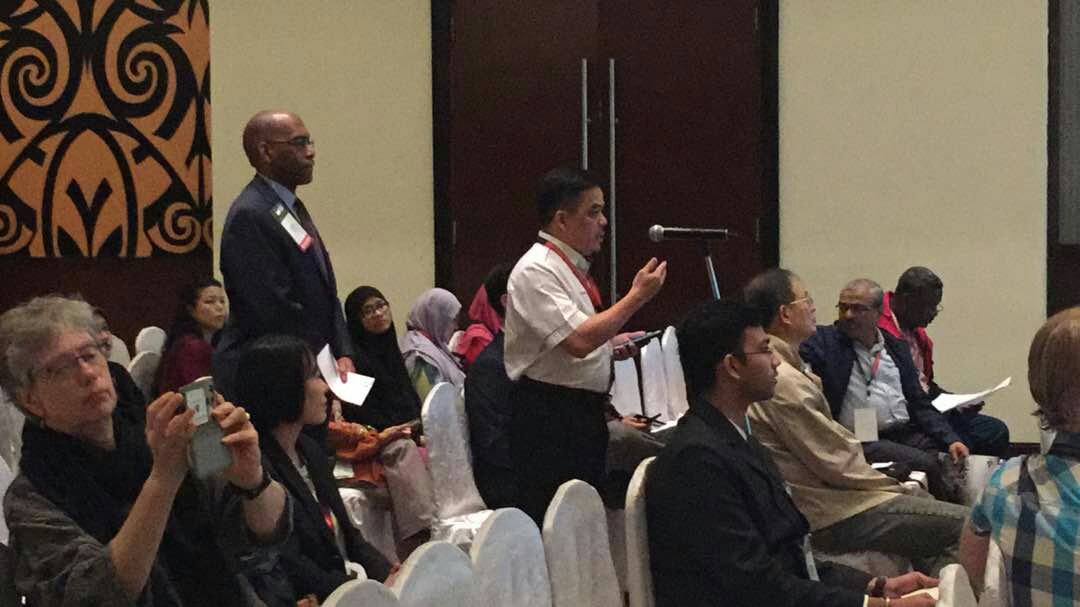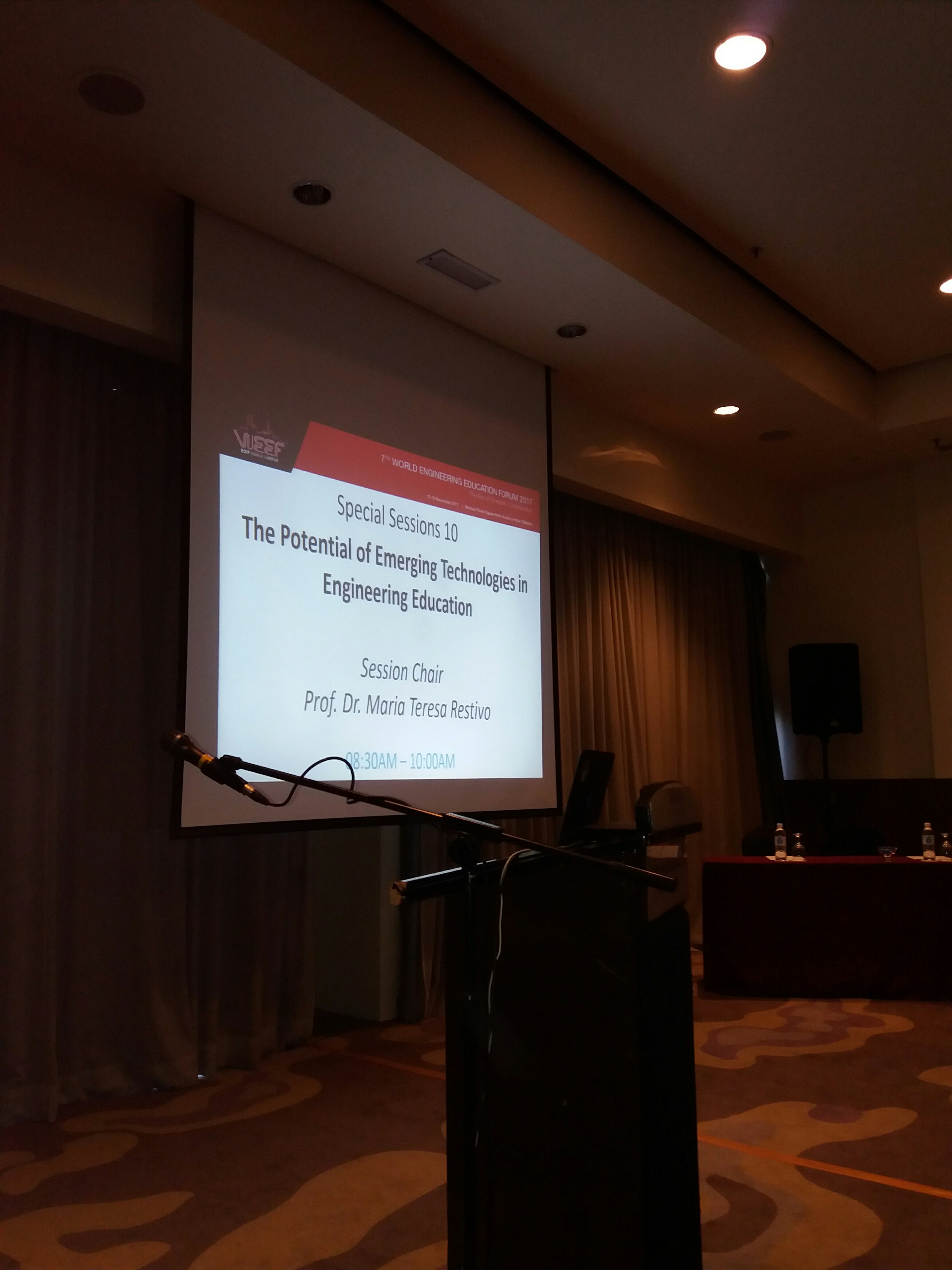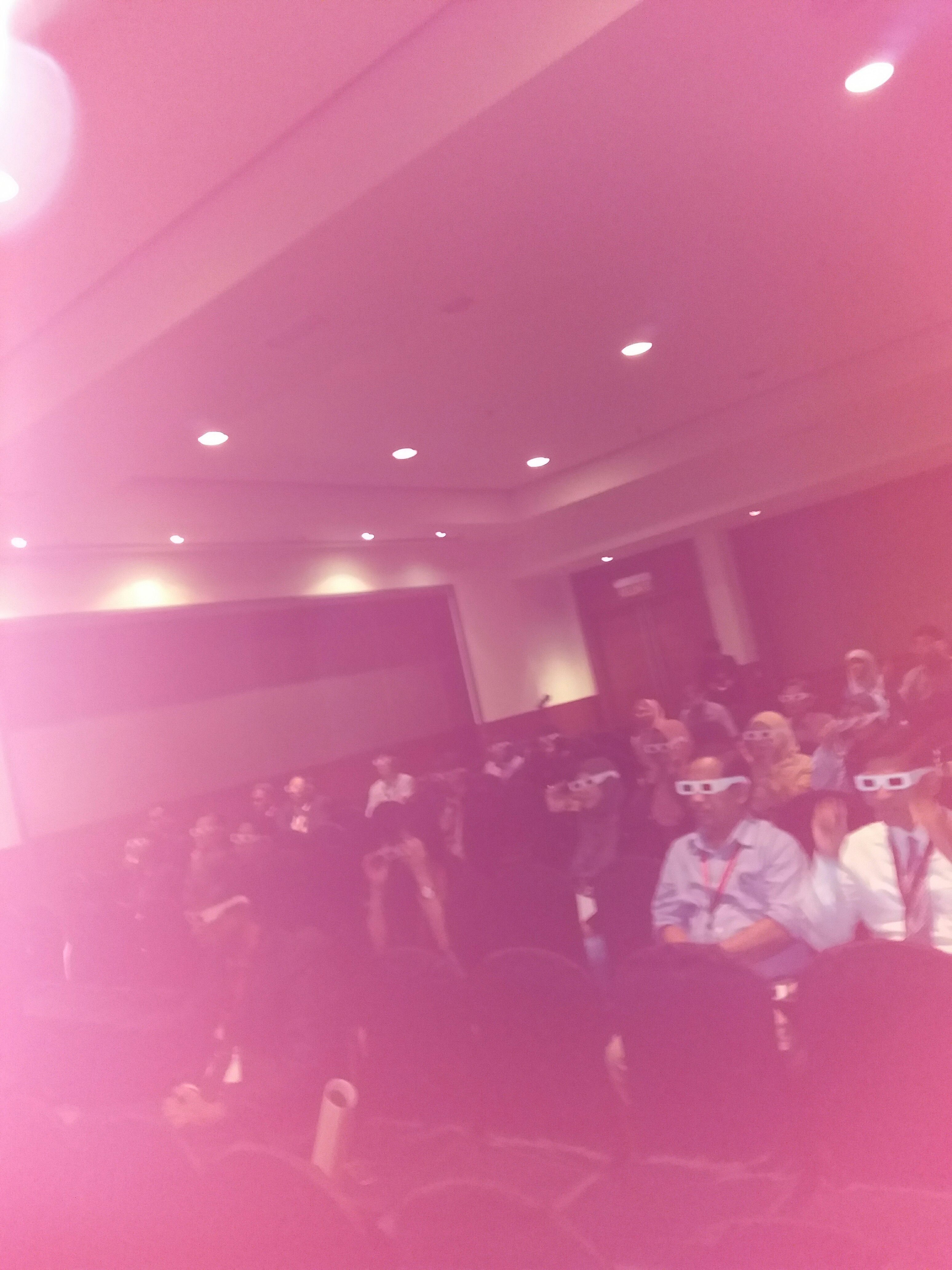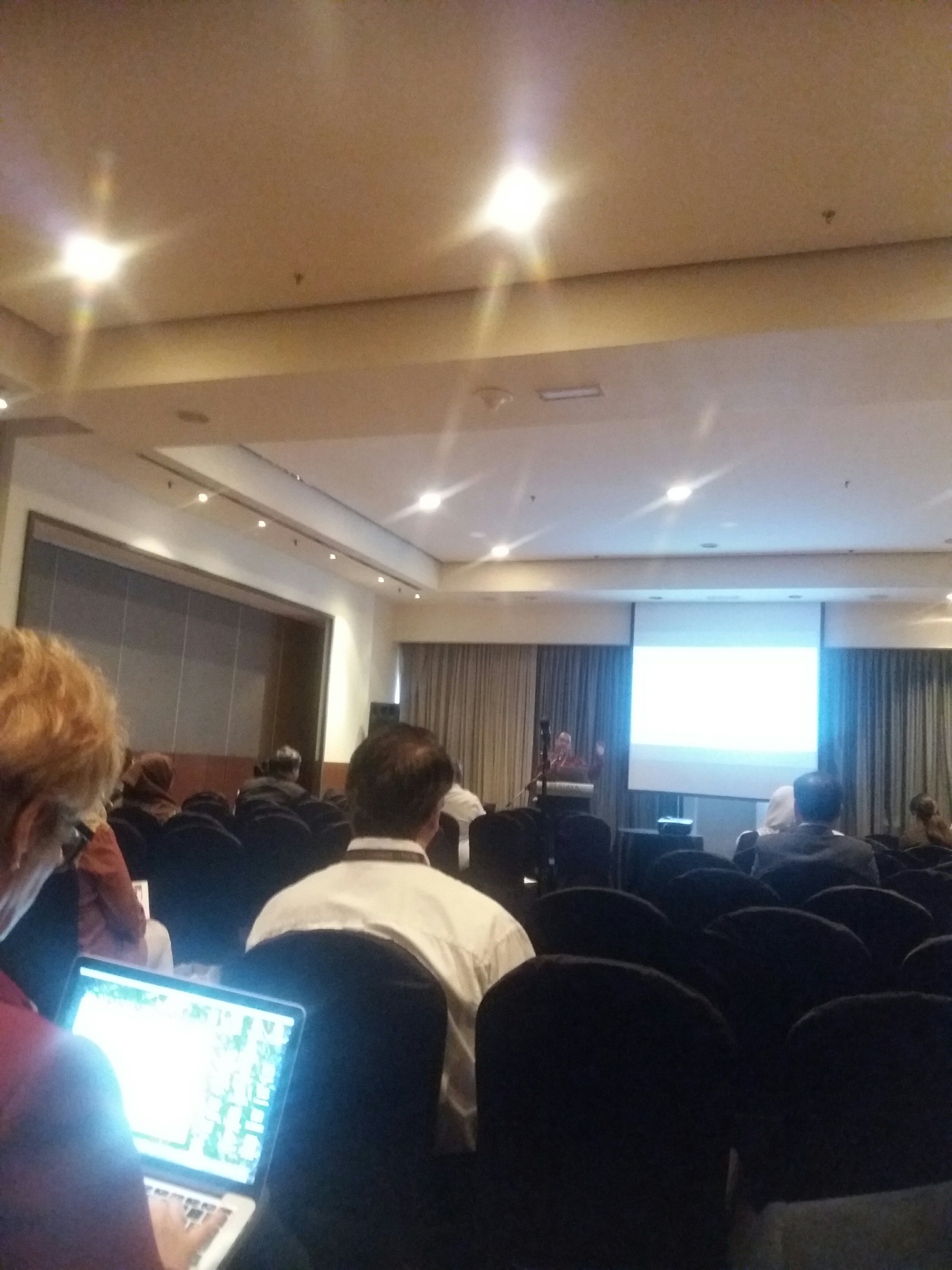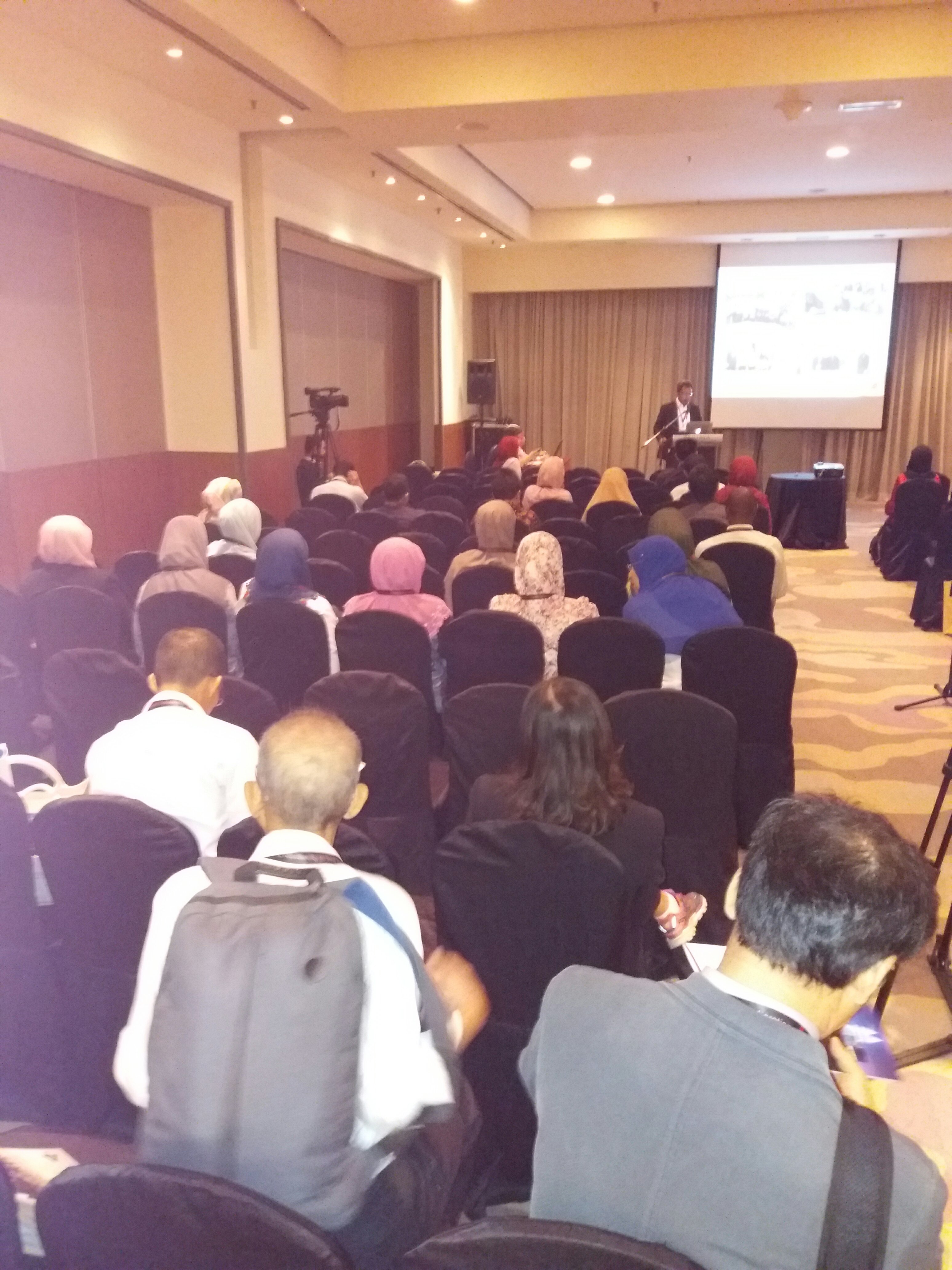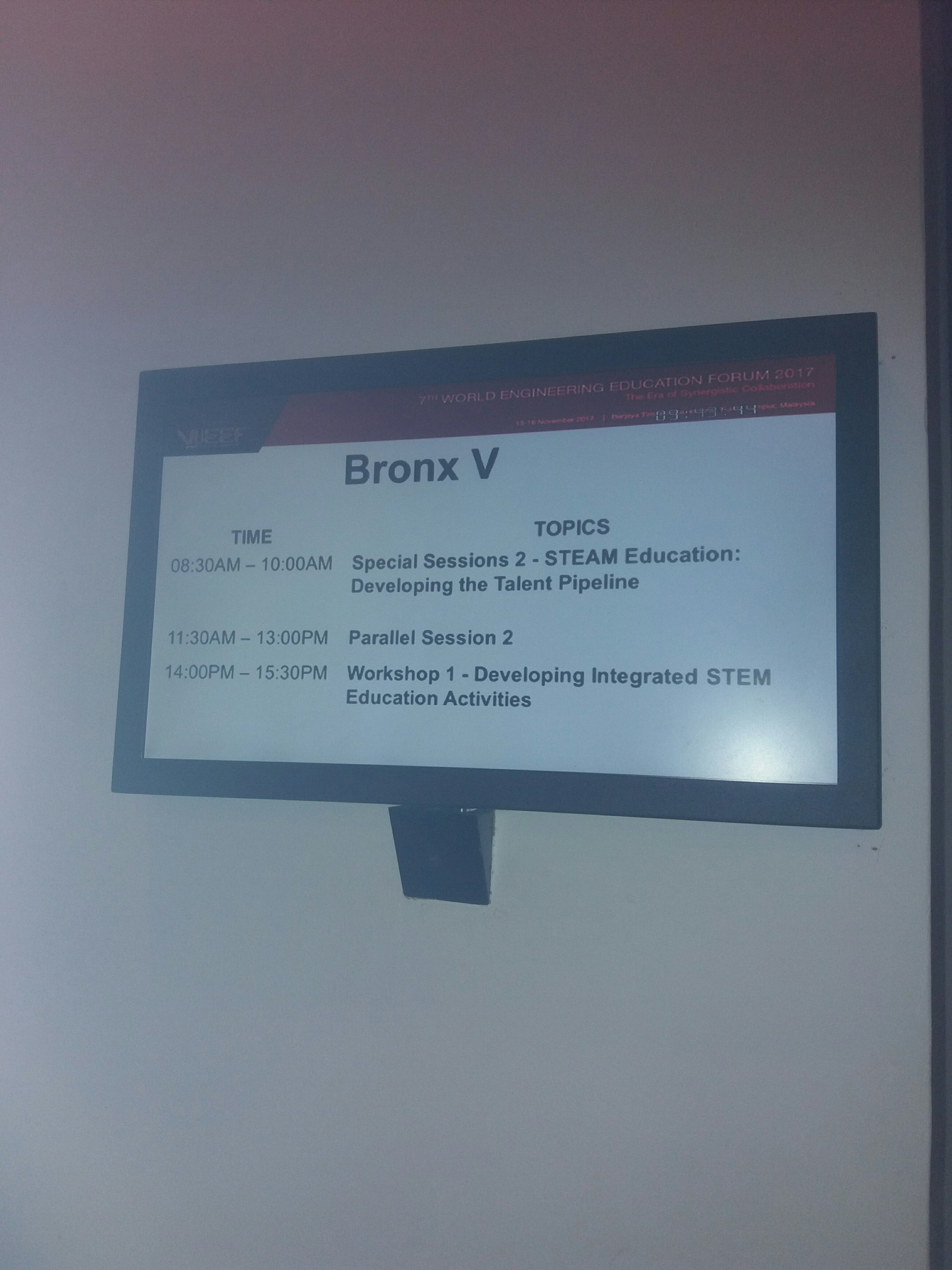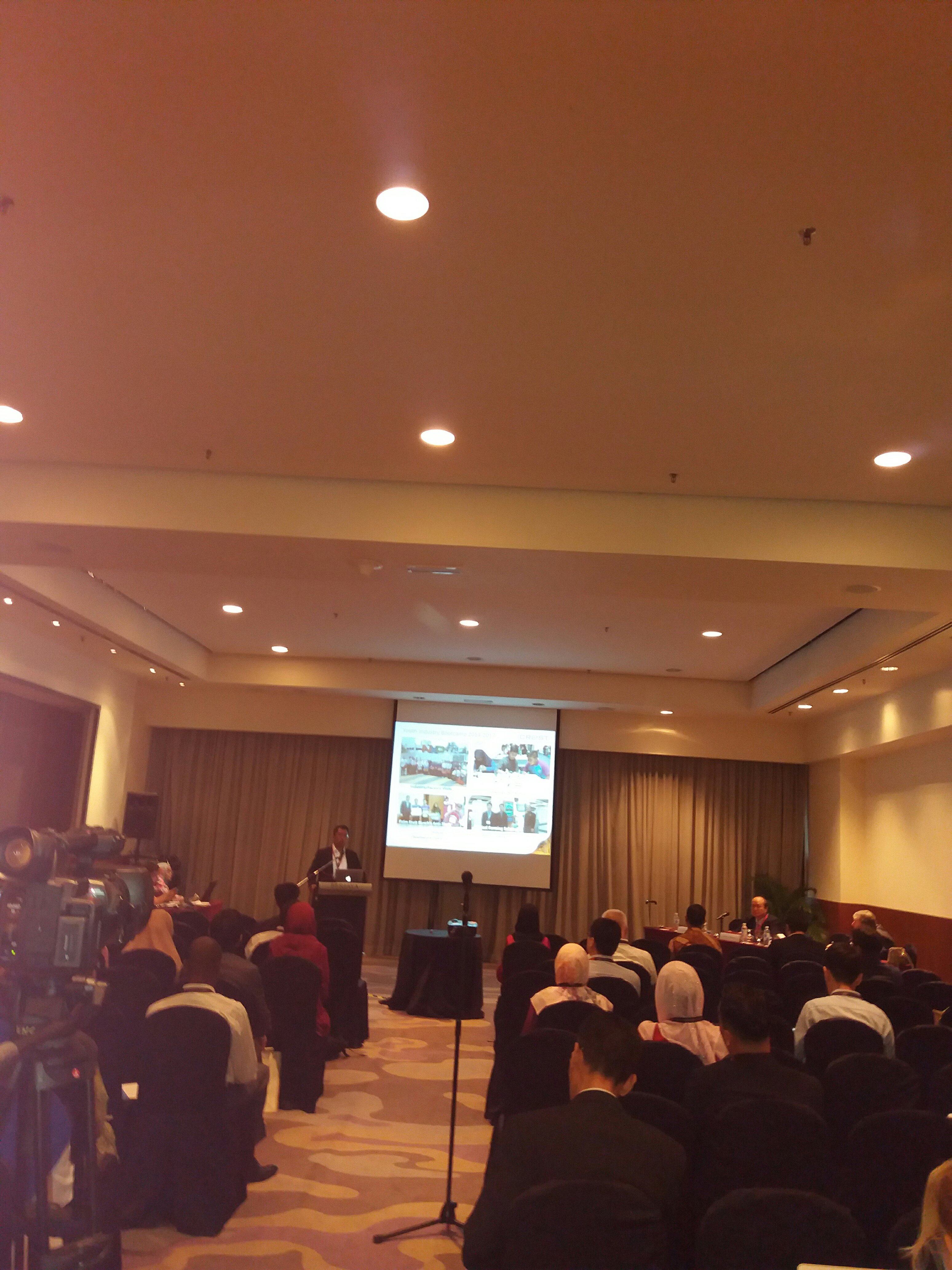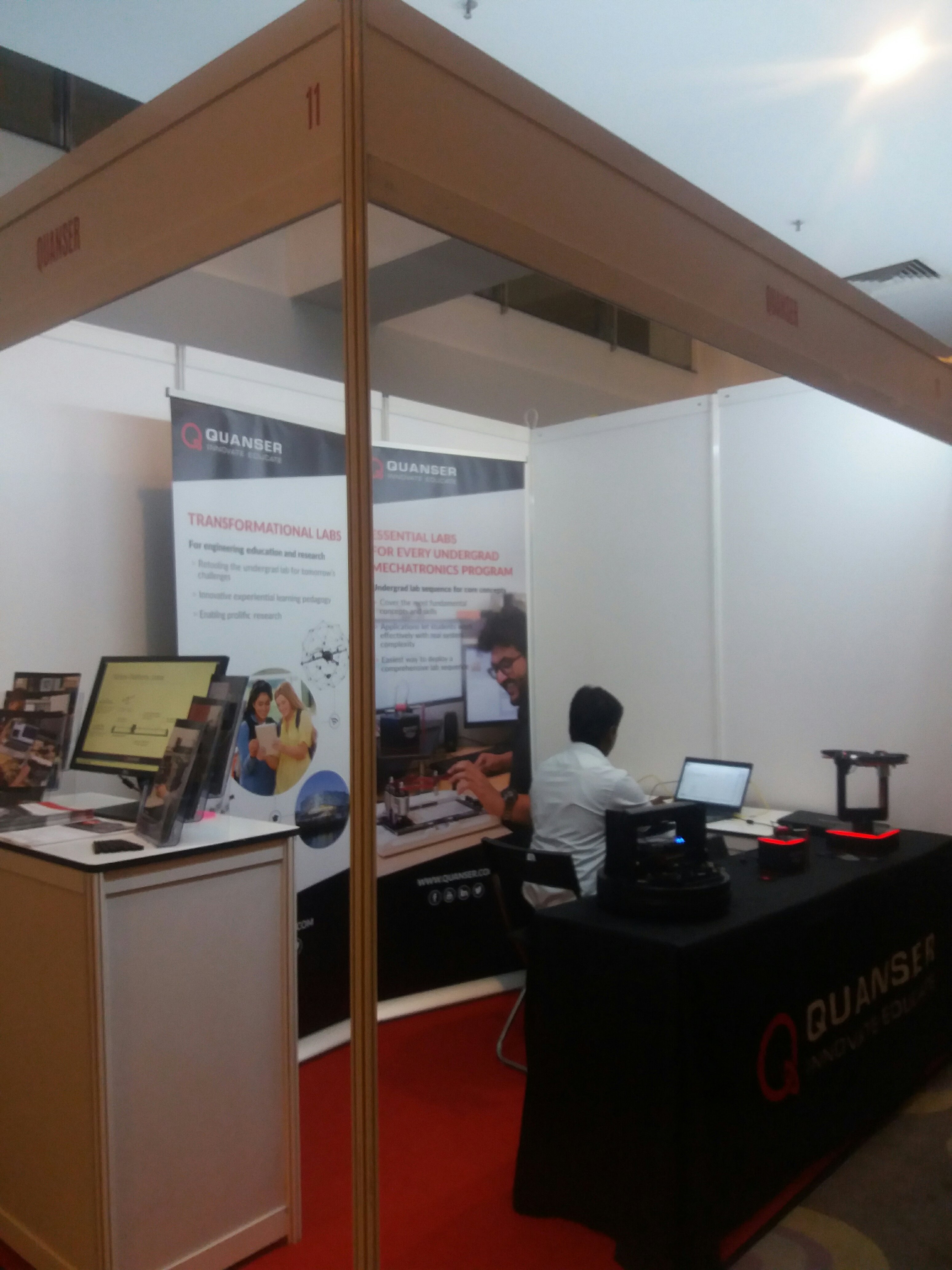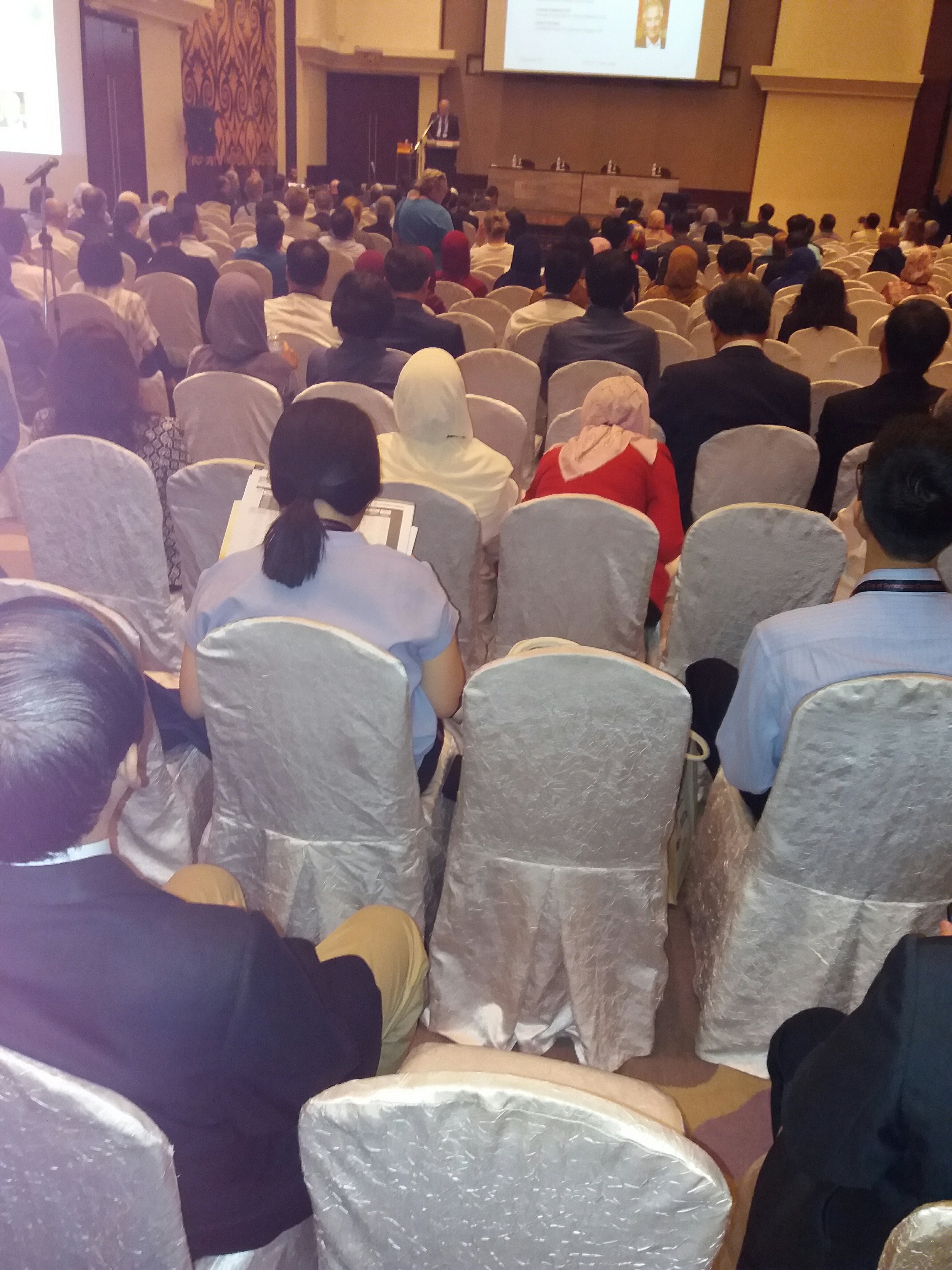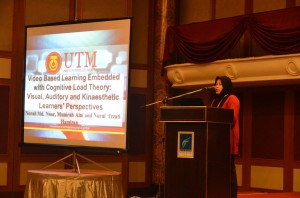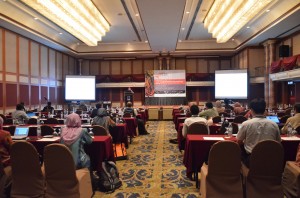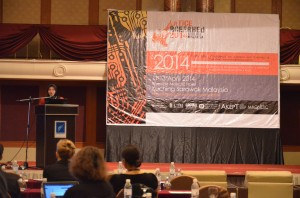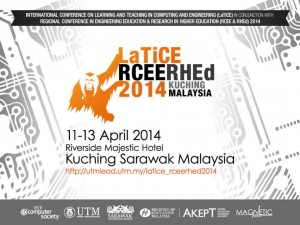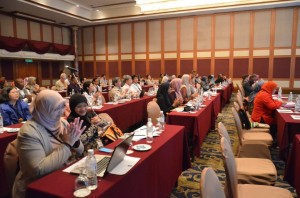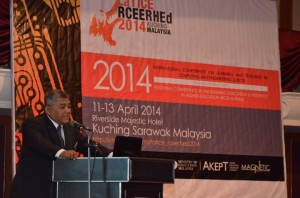As committee, arranging the parallel session and transcribe the special session discussion on Emerging Technology in Engineering Education.
As lecturer, listening to other pesenter sharing, learning new things, knowing new expert and presenting own findings.
Tag: IEEE conference
Presenting at Weef2017
Will be here from 13 until 16 November 2017. Gaining knowledge, creating networks, making friends and helping the conference as the secretariat on publication and parallel session.
The problems of preparing the students for job is real… the challenge on how to effectively deliver is real… trying to solve problem that have not yet exist … changes is a real challenge.
ICEED 2014 , last day
Hari ni last day di conference ni. Tentatif bermula dengan pembentangan 4 orang termasuk diri sendiri. Alhamdulillah, banyak input yang diterima walaupun sedar yang kajian tersebut lebih bersifat preliminary study sahaja.
Kemudian, peserta mengikuti tutorial mengenai penggunaan teknologi terkini dalam pengajaran dan pembelajaran. Walaupun OER, OCW, Web 2.0 adalah mainan kami di bidang teknologi pendidikan, namun peluang belajar seperti ini tak akan ditolak. Pasti ada sahaja benda baru yang kita akan temui… itulah konsep perkongsian pengetahuan.
Sesi terakhir bermula pukul 2, diminta oleh committee untuk menjadi pengerusi sesi ini tak dapat saya tolak. Alhamdulillah, tepat jam 4 petang, semua 7 pembentang selesai memberikan perkongsian masing2.
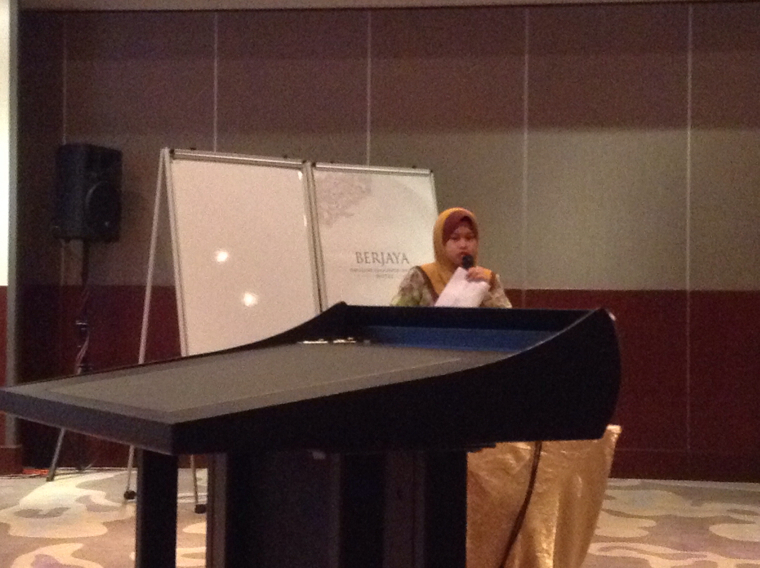
Pandangan dari meja pengerusi.
Pertemuan dengan kumpulan penyelidik yang mempunyai minat seiring adalah sangat dihargai. Moga kami berada pada tempat yang betul untuk membantu meningkatkan pendidikan Negara. InsyaAllah…
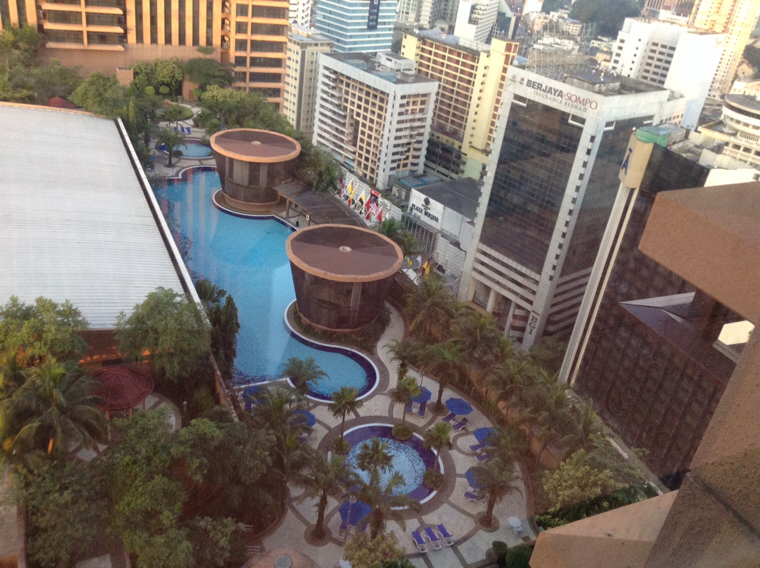
Last view dari bilik hotel.
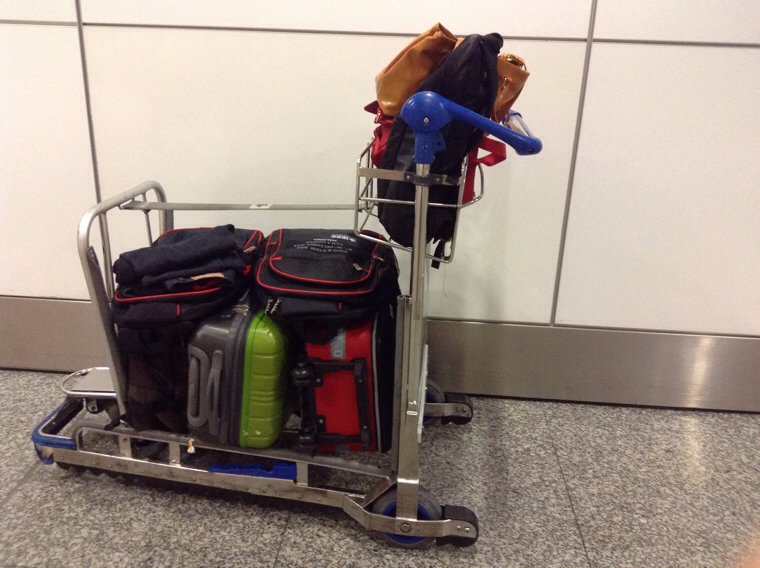
Rindu anak-anak … Jumpa lagi tahun depan Insyaallah.
ICEED 2014 , 1st Day
Kali kedua sebagai pembentang di International Congress on Engineering Education( ICEED 2014 Conference) anjuran University Teknologi Mara dan IEEE Advancing Technology for Humanity. Tahun lepas buat di Hotel Grand Dorset, Subang Jaya, Selangor. Tahun ni buat di Berjaya Times Square Hotel, Kuala Lumpur.
Pergi bertiga dengan Pelajar master Teknologi Pendidikan, Radhiah dan ‘Izzati. Kali ni, banyak paper dari UTM yang diterima. Alhamdulillah. Kami menginap di hotel yang sama…nak cari tempat makan pun senang… cuma bilik dia mahal sikit. Oleh kerana bawak anak dara orang… kejam mata jeklah masa nak bayar tu.
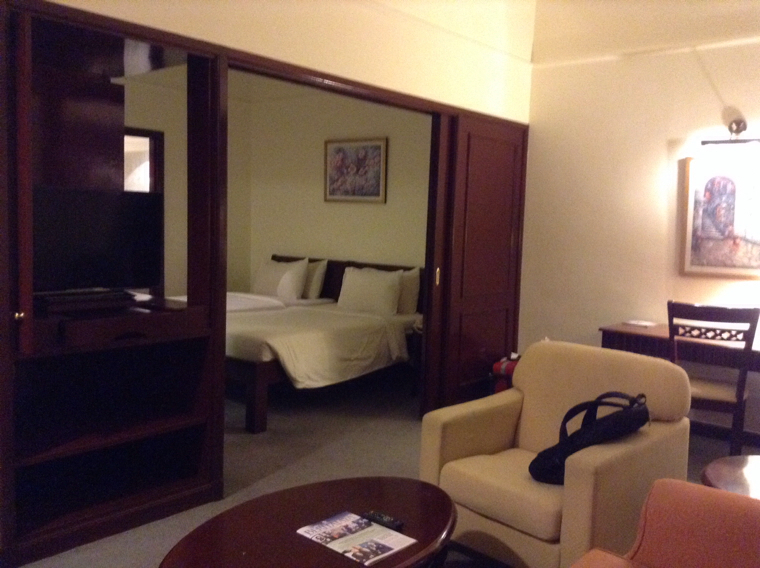
Berbaloi dengan harga… bilik sangat spacious.
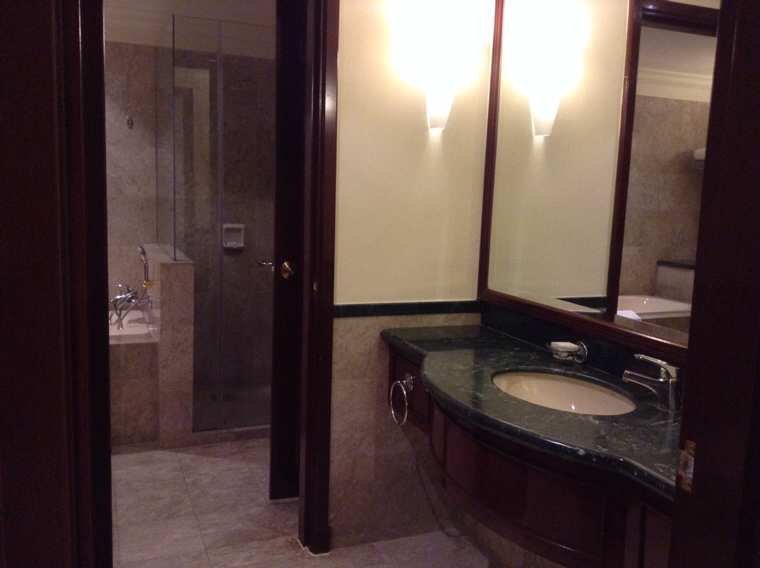
Bilik air dan bilik mandi besar dan selesa.
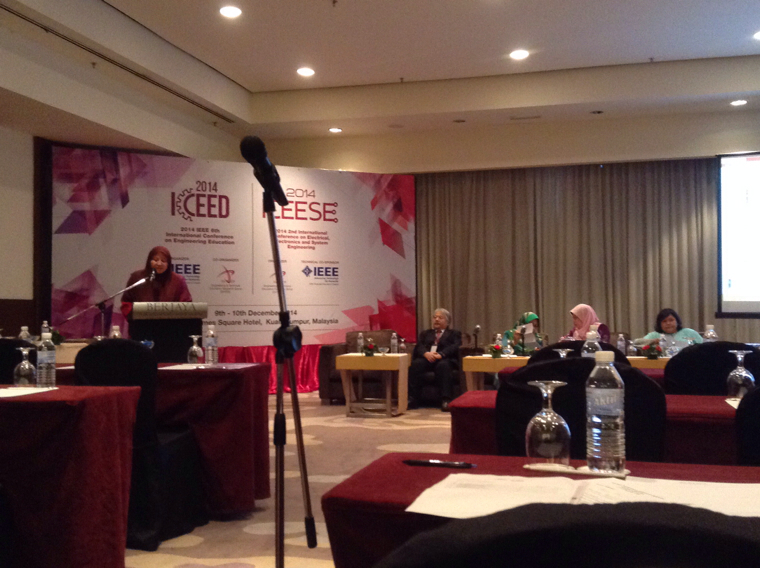
Aturcara bermula dengan upacara pembukaan dan ucaptama oleh Prof Dr Azni Zain Ahmed, Timbalan Naib Cancelor ( Akademik dan Antarabangsa) UiTM. Kemudian, kami dibentangkan dengan forum bertajuk ” Engineering Education in Japan : An Insight” oleh 3 orang pembentang daripada Kolej Teknikal Kanazawa, Jepun. Pendekatan KTC kini sangat menekankan kepada meningkatkan kreativiti dalam kalangan pelajar mereka. Antara pendekatan mereka adalah menjalankan pertandingan dalam kelas yang kemudiannya dipertandingkan diperingkat kebangsaan dan antarabangsa.
Kolej ini juga membuat kerjasama dengan industri dimana syarikat terbabit membuat mou dengan KTC yang dipanggil sebagai in-house training industri bagi memastikan pelajar mendapat kemahiran yang diperlukan oleh kedua-dua pihak yang terlibat iaitu pelajar dan industri.
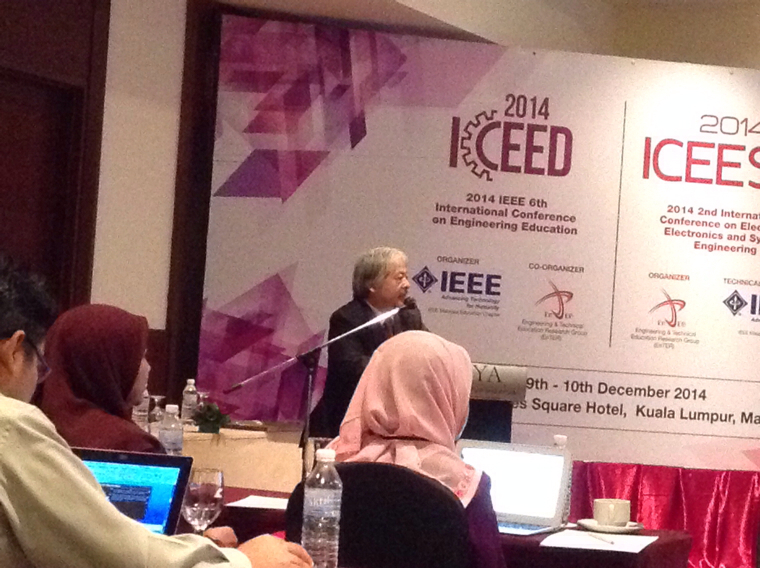
“Learning through Experience” ditekankan oleh Prof Akio Inazawa sepanjang forum ini dijalankan. Mungkin, UTM boleh mengambil sedikit idea untuk diaplikasikan dalam kurikulum kami kemudian nanti…
Video Based Learning Embedded with Cognitive Load Theory: Visual, Auditory, and Kinaesthetic Learners’ Perspectives
My 2nd paper accepted to be presented during the LaTiCE 2014 in conjunction with RCEE & RHEd 2014 conference is
“Video Based Learning Embedded with Cognitive Load Theory: Visual, Auditory, and Kinaesthetic Learners’ Perspectives”
This paper is written by me and my students. Norah Md Noor, Munirah Aini, & Nurul ‘Izzati Hamizan. It was written based on our research that had been done in 2013 under UTM Instructional Development Grant.
Abstract for the paper is as follows:
Many research studies have shown that using video as an instructional material in class has a positive impact on the students. However, it is still an open question as to whether learning using video works with all type of students and as to who actually gains more than other types of students when learning using video. Chen, Czerwinski, and Macredie [1] found that individual visual ability affects information seeking on the Web and lessens the effects of cognitive load theory. So, what about the auditory and kinaesthetic learners? This study was conducted to investigate visual, auditory, and kinaesthetic learners’ preferences towards learning using video embedded with cognitive load theory. 10 respondents within the age range of 20-24 years old have been voluntarily involved with this study. The instruments used in this research are a questionnaire set and three learning portfolios. The instruments examine the respondents’ learning styles, perception, comments, and suggestions about video-based learning selected by the researcher that were embedded with cognitive load theory. The data were analysed qualitatively using content analysis strategy. Even though the early expectation was that visual learners would be concerned about visuals more than other learner types, this research shows that all of them prefer similar elements. These include clear instruction, high visual and audio quality, and an easy-to follow strategic flow of the video. However, every learner group has its own additional characteristics that might be able to inspire its learning optimization.
Keyword: Cognitive load theory, video based learning, learning using video, auditory learners, visual learners, and kinaesthetic learners
This paper can be found in IEEE Explore,
PROCEEDING ISBN : 978-1-4799-3592-5/14
DOI : 10.1109/LaTiCE.2014.19
Application of the Pedagogical and Andragogical Model in Web-Based Learning Instruction among Non-Major Computer Science Students Learning Programming
As i inform earlier in this post on Doctoral Consortium as well as in this post that I attend LaTiCE 2014 in conjunction with RCEE & RHEd 2014 to present my paper. For your information, all paper presented in this conference will be indexed in IEE Explore which is included in SCOPUS and ISI.
Alhamdulillah, 2 of my paper had been accepted to be presented during this conference.
The title of my first paper ( some finding based on my PhD research) is
“Application of the Pedagogical and Andragogical Model in Web-Based Learning Instruction among Non-Major Computer Science Students Learning Programming”
Abstract for my paper is as follows:
This study identified the pedagogical and andragogical learning orientations preferred by non-major Computer Science students in one of the higher education institutions in Malaysia. The pedagogical and andragogical learning orientation model differs in six assumptions about learners, which are: the learner’s need to know, selfconcept, existing experience, readiness to learn, orientation to learning, and motivation [1]. Questionnaires were developed and distributed among 262 undergraduate students in non-major Computer Science Faculty who took the Introduction to Programming Language course. Descriptive analyses have also been conducted (alpha – 0.958), and the results showed that a majority of the sample in this study (246 respondents or 93.9%) stay under Stage 2 in the four stages of learning development. This means that the respondents had a high preference for pedagogical as well as andragogical learning orientations. Data collected shows that non-major Computer Science students in the age range of 18 to 24 are able to work independently since their self-concept had progressed to the self-directed learning phase. However, they still need guidance from their lecturers. These findings were used to develop a prototype of an individualized online learning environment based on the pedagogy and andragogy as its foundational model. Learners in Stage 2 need goal-setting, learning strategies, and evaluation to be set by the teacher. The online learning environment allowed the student to explore her learning modules from easy to hard levels. However, students were allowed to continue to the next module even though their performance was not yet at the passing level. This is based on andragogical theory; that they are dependent learners with a moderate level of self-directedness. Additional learning materials were also provided that could be freely explored by learners at their own pace. The prototype was tested among one group of 32 students in the Faculty of Education in the course Introduction to Programming using Pre-Experimental Research Design. The statistical analysis conducted indicated that the application of the pedagogical and andragogical Model in web based instruction had a positive effect on learners’ outcomes.
Keyword: pedagogy, andragogy, learning programming for non-majors
This paper can be found in IEEE Explore,
PROCEEDING ISBN : 978-1-4799-3592-5/14
DOI : 10.1109/LaTiCE.2014.27
LaTiCE 2014 in conjunction with RCEE and RHeD 2014
On 11-13 April 2014, University Teknologi Malaysia and IEEE Computer Society had organize the International Conference on Learning and Teaching in Computing and Engineering (LaTiCE) in conjunction with Regional Conference in Engineering Education & Research in Higher Education (RCEE & RHEd) 2014 at Riverside Majestic Hotel, Kuching, Sarawak.
The conference intention is to create a platform towards sharing current practices and rigorous research being conducted in computing and engineering education as well as Higher education. All paper presented in this conference will be indexed in IEE Explore which is included in SCOPUS.
We hope that the conference was a huge success, provide high quality research presentations in three parallel tracks, inspiring keynotes, and strengthen the network. We also wish that all the participants had a fantastic experience in Borneo.
Random picture :
More picture during the conference? Click this link.
Or, like their facebook at this link.
ICEED 2013 telah selesai
Alhamdulillah, selesai dah seminar ICEED 2013. Banyak yang telah ku pelajari sepanjang 2 hari di sini. Tentang kajian, proses akreditasi, OBE, HCI, User Interface, Creative Learning Model, dan… banyaklah.
Sambil2 dengar, sambil memikirkan kesesuaian dengan diri… apa kajian lanjutan yang mungkin boleh dilaksanakan tahun depan. kuperhatikan juga tingkahlaku sesetengah Pembentang yang sangat defensive terhadap kajian yang dijalankan…
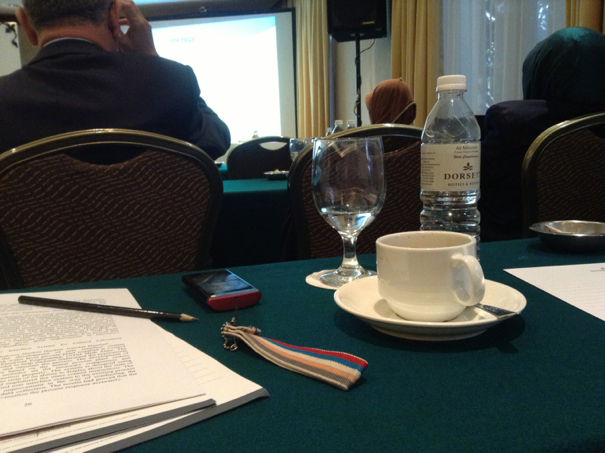
Teman buat tahan mengantuk… Cappucino
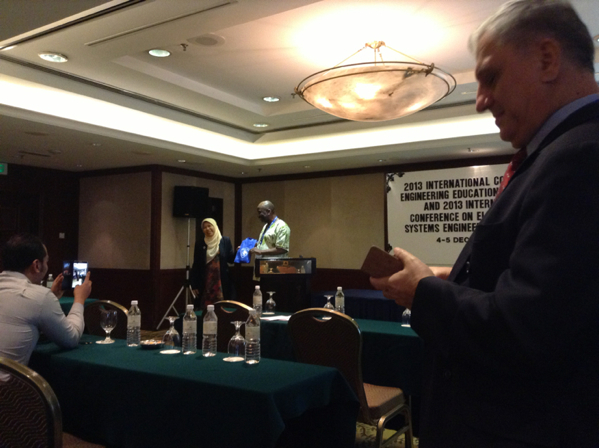
Majlis penutup yang ringkas.
Takda dinner, jamuan keraian, lawatan… betul2 fokus pada perkongsian ilmu.
Letih tapi berbaloi.
Selepas 2 kali terlibat dengan Seminar Antarabangsa Anjuran CTL dan CEE, rasa sangat berterima kasih pada jawatankuasa kerja yang bertugas sepanjang seminar ICEED 2013 dijalankan. Mudah2 an, kertas kerja yang dihantar ke seminar ini akan diterima oleh SCOPUS untuk diindekskan… Aminnnn.
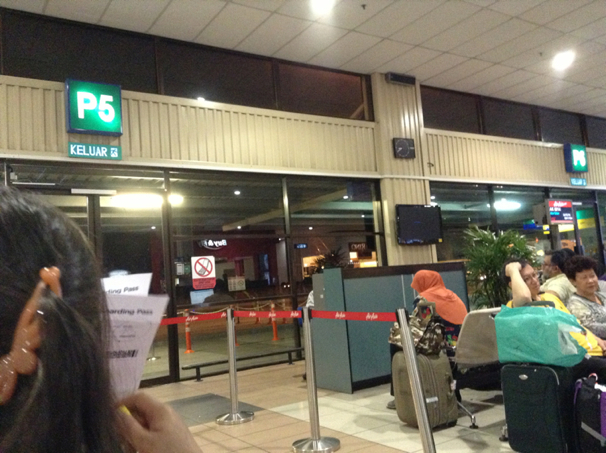
LCCT Airport…. Selamat tinggal Subang Jaya…
Lepas ni, kena menyediakan diri untuk seminar antarabangsa LATICE & RCEERHed 2014 yang kami anjurkan, kerjasama Fakulti Pendidikan, SPS dan CTL di Sarawak pula.
paper presented in ICEED 2013
As i inform earlier in my previous post that I attend ICEED 2013 conference to present my paper. For your information, all paper presented in this conference will be indexed in IEE Explore which is included in SCOPUS and ISI.

My paper presented during this conference is “The framework for Learning using Video on Cognitive Load Theory among Visual Learners” written by Me and my students, Noor ‘Izzati Hamizan and Radhiah Ab Rahim.
Abstract for my paper is as follows:
Using video for learning is no longer extraordinary in the world of education. Many researchers have shown that visual learners enjoy the use of video. However, which video will best grab their attention? This research was conducted to investigate the best framework for learning using video among visual learners. In order to do so, three different videos embedded with Cognitive Load Theory were selected by researchers. Then, 23 students from varied faculties at University Technology Malaysia (UTM) were selected to answer the Visual, Audio and Kinaesthetic (VAK) Learning Style Test. Nine visual learners were then identified among these respondents and invited to answer the questionnaire on perception of learning using video based on cognitive load theory. Data were analyzed using qualitative measures and content analysis. The findings show that visual learners love videos with less than six minutes’ duration, high definition visual quality, simple delivery language and a slow delivery method. All of the visual learners preferred to use video before entering class, which synchronizes with the flip classroom strategy. Hopefully, this framework can be used by educators to develop their own video-based learning materials.
This paper can be found in IEEE Explore,
IEEE Catalog Number :CFP1368H-CDR
PROCEEDING ISBN : 978-1-4799-2333-5
DOI : 978-1-4799-2332-8/13
Some suggestion on how the research can be improved by the fellow collegue during my presentation were as follow:
1. Use another group (kinaestetic or Auditory learners) as the control group to see the differences and similarity using the same assesment tools.
2. Should also look into bacground of the learners such as gender, course, etc that might influence the results.
3. Try to look into the psycology aspect on the Cognitive Load of the learners and their performance.
2013 International Congress on Engineering Education (ICEED 2013)
On 4-5 December 2013, University Teknologi Mara and IEEE Advancing Technology for Humanity had organize the ICEED 2013 Conference at Hotel Grand Dorset, Subang Jaya, Selangor.
This is the 5th year of the conference series and the theme for the past conference has evolved from embracing the challenges in engineering education to acknowledging that engineering education is the way forward.
Some paper presented in this conference
Lecture Notes on A Linear Form of Power Spectral Density Estimation in signal Processing by Prof Qun Wan from China.



The conference really give many information regarding education, research and engineering education that currently need to be considered and concern. The most hot topic during the session is EAC and OBE as well as soft skill of the Engineering Education Students. I hope that I can join this conference again next year, InsyaAllah.
